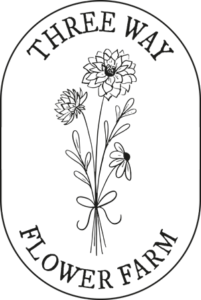What does seasonal mean exactly?
Flowers that are grown, harvested, and enjoyed “in season” have several benefits. Confusing? Compare it to food. If you are shopping at the grocery store, you may notice bushels of fresh apples in the fall. In the spring, you may purchase fresh berries for half the price. Flowers are similar. Here are some reasons you should be shopping seasonal flowers:
- Seasonal flowers are healthier and more robust. This means longer, stronger stems. Bigger blooms. It means your flowers last longer in the vase. It may even mean your flowers are more colorful and more fragrant.
- Seasonal flowers are more cost-effective for you. You want peonies for your wedding in the fall? You will pay a hefty price to have them grown elsewhere and shipped. Ask your farmer florist expert for other options and you’ll have extra money to spend on your honeymoon.
- Seasonal flowers are good for your community. If you’re buying seasonal, you’re probably buying local. Support a local flower farmer and in turn, you’re helping give back to where you live.
- Seasonal flowers are better for the environment. Did you know 80% of flowers used in the United States are trucked, flown, and shipped from Central and South America. The carbon footprint is high and the use of pesticides is alarming.
- Lastly, for everything there is a season. Seasonal flowers help us appreciate the present. How special would a Thanksgiving meal be if we ate it everyday. Seasonal flowers give us something to look forward to. I can’t wait for snapdragons this spring.
Here are some popular focal flowers and the “seasons in which they are seasonal”:
Spring – Peonies, Tulips, Poppies
Summer – Zinnias, Lisianthus, Sunflowers
Fall – Dahlias, Marigolds, Chrysanthemums
Winter – Hellebores, Anemones, Amaryllis




